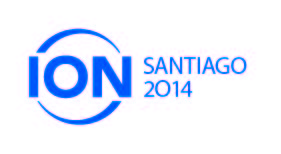 Starting in just about five hours at 2:00pm CLST (15:00 UTC) our ION Santiago event will be streaming live out of Chile. We’ll be sharing the very latest news about IPv6, DANE, BGP security, Anti-spoofing, TLS, Best Current Operational Practice (BCOP) efforts, and standards within the IETF.
Starting in just about five hours at 2:00pm CLST (15:00 UTC) our ION Santiago event will be streaming live out of Chile. We’ll be sharing the very latest news about IPv6, DANE, BGP security, Anti-spoofing, TLS, Best Current Operational Practice (BCOP) efforts, and standards within the IETF.
You can watch the event using the LACNIC 22 webcasting page. Here is the full ION Santiago agenda:
| 2:00 PM |
Opening RemarksChris Grundemann (Internet Society) |
| 2:10 PM |
What’s Happening at the IETF? Internet Standards and How to Get InvolvedAlvaro Retano (Cisco) What’s happening at the Internet Engineering Task Force (IETF)? What RFCs and Internet-Drafts are in progress related to IPv6, DNSSEC, Routing Security/Resiliency, and other key topics? We’ll give an overview of the ongoing discussions in several working groups and discuss the outcomes of recent Birds-of-a-Feather (BoF) sessions, and provide a preview of what to expect in future discussions, including bringing the IETF to Latin America in 2016. |
| 2:40 PM |
Operators & the IETFChris Grundemann (Internet Society) The Internet Society is seeking to foster a larger and more engaged network operator community around the IETF and protocol development work. We conducted a widespread survey of network operators from January to July 2014 and are now analyzing and synthesizing the results. In this session, we’ll discuss the initial survey results and our next steps to create a report and IETF Internet-Draft that outlines the challenges to greater operator engagement in the IETF and a summary of potential solutions. |
| 2:55 PM |
Beyond the Tipping Point: Global Connectivity Two Years After World IPv6 LaunchArturo L. Servin Niembro (Google) and Carlos Martinez Cagnazzo (LACNIC) 6 June 2014 marked the 2nd anniversary of World IPv6 Launch, when thousands of Internet Service Providers, home networking equipment manufacturers, and web companies around the world came together to permanently enable IPv6 on their products and services. Where are we now on the path to full global IPv6 adoption? We’ll provide a global update and then focus on the current state of IPv6 adoption in South America, including a brief tour of the resources available from the Internet Society to help networks of all sizes get IPv6 up and running for good. We will also explore how those who have already deployed IPv6 can help the larger community by adding even more content to the repository. |
| 3:25 PM |
Best Current Operational Practices UpdateJan Zorz (Internet Society) The Internet Engineering Task Force (IETF) standardizes the protocols and services that vendors implement and network operators are supposed to deploy and use. We believe there is an opportunity to better identify, capture, and promote best current operational practices emerging from various regional network operators’ groups. We believe sharing these documents across the globe would benefit the wider Internet community and help more operators deploy new technologies like IPv6 and DNSSEC faster and easier. Deploy360’s Jan Zorz will give an update on this progress, discuss the status of BCOP efforts across the world, and give an overview of some of the documents in the process so far. |
| 3:35 PM |
BREAK |
| 4:00 PM |
Panel: Routing Around Catastrophe – Securing BGP, Anti-spoofing, and MoreModerator: Christian O’Flaherty. Panelists: Rodrigo Arenas (NIC CL); Wes Hardaker (PARSONS); Max Larson Henry (Transversal); Gerardo Rada (LACNIC). How do we improve the resilience and security of the Internet’s underlying routing infrastructure? While Internet routing has worked well over the years, there have been instances where errors and misconfigurations have caused stability issues. Malicious attackers have also created denial of service attacks and other issues by spoofing IP addresses and manipulating routing tables. What are the best practices we can use to help mitigate these kind of attacks? In this session, our panel of experts will address technologies such as BCP 38, anti-spoofing, and BGP security efforts that can help secure the routing infrastructure. They will also consider the Internet Society’s new Routing Manifesto, which aims to introduce a minimum set of security measures which, if deployed on a wide scale, could result in visible improvements to the security and resilience of the global routing system. |
| 5:00 PM |
Lock it Up: TLS for Network OperatorsChris Grundemann (Internet Society) Transport Layer Security (TLS), the successor to Secure Sockets Layer (SSL), can be used in many applications other than Web browsers. In order to make the Internet more secure, TLS needs to be widely deployed by all kinds of applications across the Internet. In this session, we will help network operators understand how best to support the use of TLS-encrypted applications across their networks and address how operators can best support their networks and users once everything is encrypted. |
| 5:30 PM |
DANE: The Future of Transport Layer Security (TLS)
|
| 6:00 PM |
Closing RemarksChris Grundemann (Internet Society) |
Join us TODAY for what should be an excellent set of sessions!
And if you want to get started now with deploying these technologies, please visit our “Start Here” page to find resources targeted at your type of organization or role.


